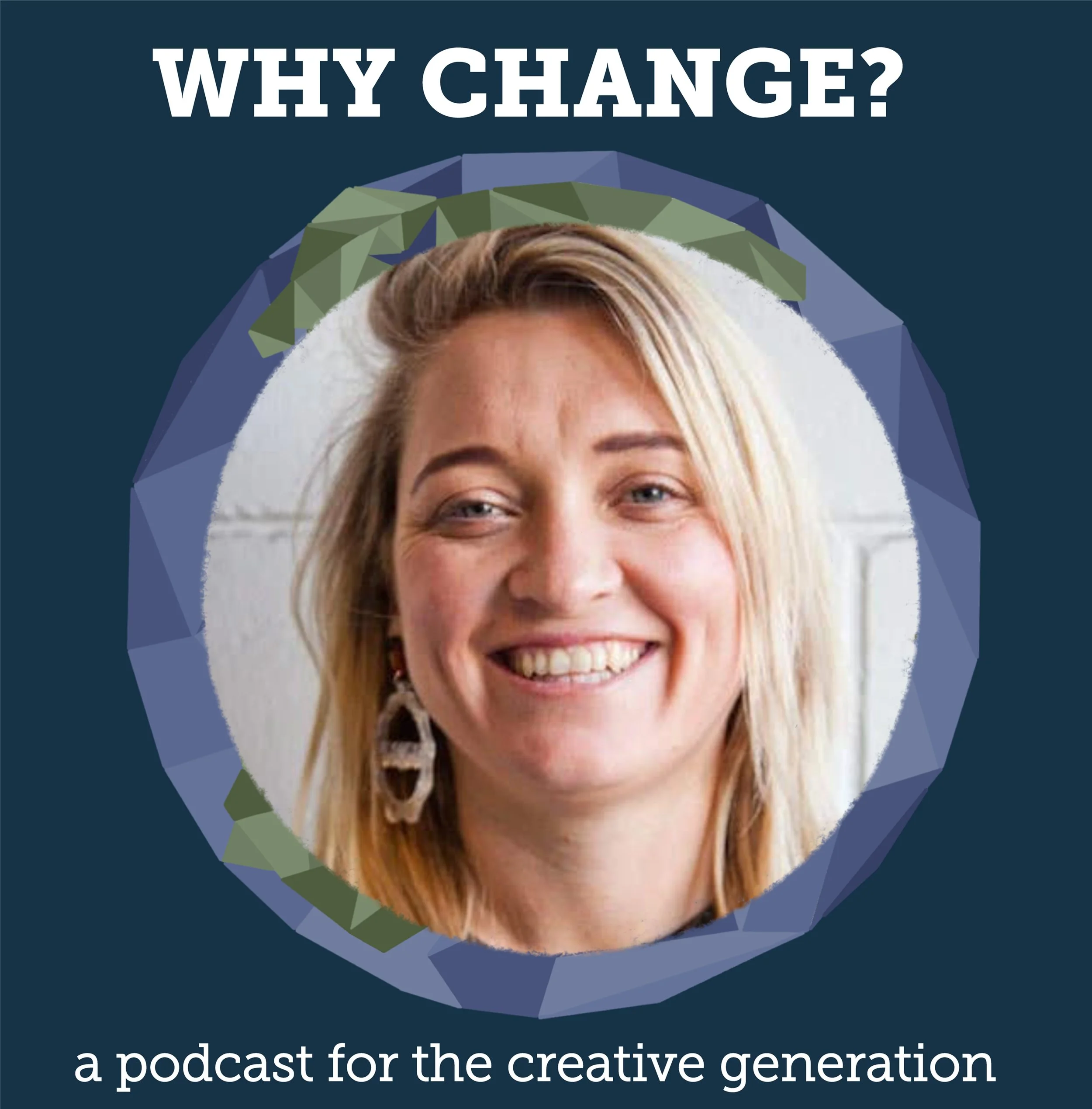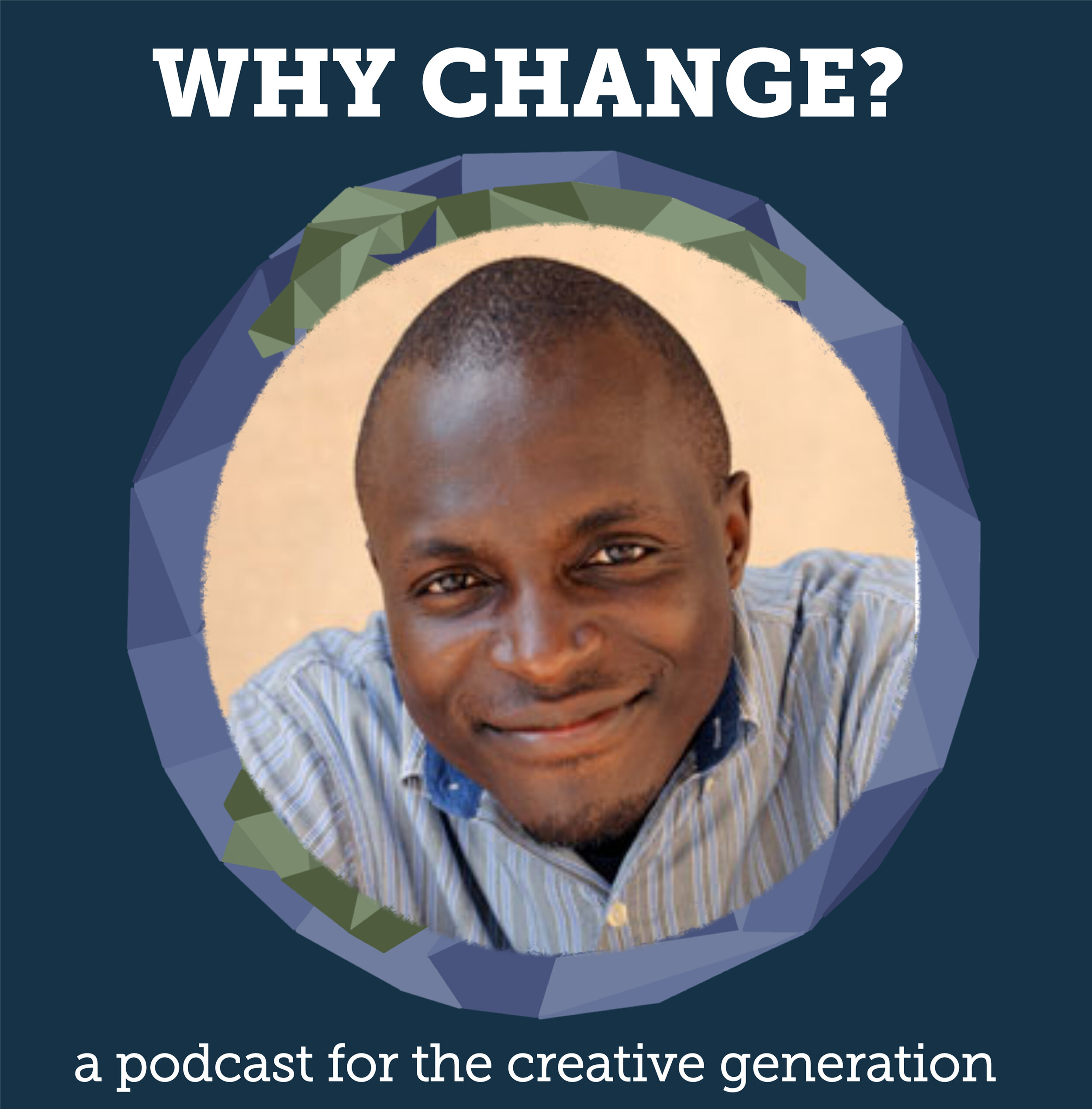Rachael Jacobs

Campaign Correspondent
Why Change? Podcast Co-host
Rachael Jacobs (she/her) serves as a Campaign Correspondent for the Campaign for a Creative Generation. In this role, she acts as a co-host on the Why Change? podcast.
Rachael is a lecturer in Creative Arts Education at Western Sydney University, a community artist, writer and activist. She is a former secondary teacher (Dance, Drama and Music) and primary Arts specialist. Rachael has facilitated arts projects in community settings all over Australia, mostly in refugee communities, in prisons and in women’s refuges.
In 2016 contributed to the arts education component of the OECD report on the Sustainable Development Goals for 2030 and in 2021 she is assisted in the analysis for UNESCO’s International Commission on Futures of Learning.
As a community activist she uses the arts to make statements about public education, climate justice and building anti-racist futures. She is a freelance writer, aerial artist, South Asian dancer and choreographer. She was a founding member of the community activism group, Teachers for Refugees and runs her own intercultural dance company.
Location: Sydney, Australia
Podcast Episodes
During this episode of Why Change? co-hosts Rachael and Jeff discuss their recent work and draw connections to Jeff’s interview. Jeff shares his conversation with Jean Hendrickson, a champion for arts integration in her community and around the world. They discuss the opportunities and challenge of scaling and the bravery needed to achieve it. Rachael and Jeff share their hopes and frustrations with adoption of permission practices in education reform.
During this episode of Why Change? co-hosts Rachael and Jeff discuss their upcoming work plans. Rachael shares her interview with theater-maker Kady Robinson. They discuss Kady’s work exploring gender fluidity in contrast with growing up in Australian military culture. Rachael and Jeff unpick the implications of challenging work with young creatives and the programs which support them.
During this episode of Why Change? co-hosts Rachael and Jeff discuss their upcoming work and big ideas. Jeff shares his interview with Antonio Cuyler, an arts administration educator, researcher, and musician focused on achieving creative justice through access, diversity, equity, and inclusion. Rachael and Jeff discuss the value of multi-hyphenated perspectives in dialogues on the topic and how we work together to advance a common racial justice agenda.
During this episode of Why Change, Jeff provides reflection and background information on the global movement to advance arts education, including the recent World Summit of Arts Education hosted in Madeira, Portugal. Co-hosts Rachael and Madeleine join Jeff to reflect on their time together, in-person in Madeira Island, the big ideas they brought to the dialogue, and their visions for the future. Listeners are encouraged to participate in the efforts to aggregate ideas and visions for the future of the field for the UNESCO Framework for Culture and Arts Education.
During this episode of Why Change? Co-hosts Rachael Jacobs and Ashraf Hasham check in on their outlooks for 2023. Rachael interviews Astrid Jorgenson, the founder of Pub Choir, who focuses on community-based, collective music making. The discussions explore collaboration, inclusivity, new approaches to music-making.
During this episode of Why Change? the co-hosts of the podcast - Ashraf Hasham, Rachael Jacobs, Madeleine McGirk, Jeff M. Poulin, and Karla Estela Rivera - re-introduce themselves and share their hopes and plans for Season 3. The co-hosts discuss their multi-hyphenated personal and professional identities, how they plan to use those in the coming season, and the ways we can bring more joy into our work.
During this episode of Why Change? the co-hosts of the podcast - Ashraf Hasham, Rachael Jacobs, Madeleine McGirk, Jeff M. Poulin, and Karla Estela Rivera - reflect on their conversations throughout Season 2 and the myriad guests who made this season so rich and inspiring. The co-hosts revisit some of their favorite conversations, the questions that grew out of those discussions, and what they hope to bring into Season 3.
During this episode of Why Change? co-hosts Ashraf and Jeff reflect on disrupting the field of community foundations through Ashraf’s interview with Celeste Smith, Senior Program Manager for Arts and Culture at The Pittsburgh Foundation, and Jonathan Cunningham, Senior Program Officer at Seattle Foundation. In this episode, you’ll hear conversations about systemic change in the way community foundations fund projects and smaller, BIPOC-led organizations, as well as how some foundations are funding beyond trauma and instead focusing on joy.
During this episode of Why Change? co-hosts Rachael and Karla discuss professional updates amidst big changes in the field of theatre education. They discuss co-host Jeff’s interview with Alexis Truitt and Mitch Mattson from the American Alliance for Theatre & Education. Both the interview and discussion center on the movement of diversity, equity, and inclusion practices in the global field of theatre education.
During this episode of Why Change? co-hosts Rachael and Jeff chat with their colleague Dr. Michael Finneran about the topic of ‘creative justice.’ Rachael and Michael have been exploring this concept, and its applications around the world, for the last few years - the discussion explores the histories, theories, applications, and healthy tensions within the big idea.
During this episode of Why Change? co-hosts Rachael and Jeff reflect on the past few months filled with numerous gatherings. Rachael shares her interview with Amy Claire Mills, a performance, textiles, and installation artist with the intention of deconstructing ableism. Rachael and Jeff discuss their takeaways, including the notion of “creative brave spaces.”
During this episode of Why Change? co-hosts Madeleine and Jeff discuss exciting upcoming projects and start thinking big about impact. Madeleine shares her interview with Carrie Ziegler, a community-engaged artist focused on youth and environmental issues. Madeleine and Jeff discuss Carrie’s impact, youth ownership of creative work, and the ripple effects of community-engaged creative projects led by young people.
During this episode of Why Change? co-hosts Jeff and Rachael catch up on the evolutions of their work. Jeff shares an interview with James Wells of Crayola discussing how arts educators can drive change in their schools and the broader field. Rachael and Jeff amplify key ideas about educational equity and racial justice.
During this episode of Why Change? co-hosts Rachael and Jeff discuss artists in politics. Rachael shares about her experience running for elected office and her conversation with artist and environmental activist, Jess Harwood. They discuss using art to convey complex messages and empowering youth, like the School Strikers, to take social and civic actions.
In this preview of Season 2, the Why Change? Co-hosts - Karla, Ashraf, Rachael, Madeleine, and Jeff connect to discuss their plans for the coming season. Jeff shares a bit about the shift in focus of Why Change?’s second season to focus on the adult change-makers supporting the creative development of young people and how this fits into the suite of podcasts produced by Creative Generation.
Join us for the final episode of Why Change? ‘s first season as co-hosts Karla, Madeleine, Rachael, Ashraf, and Jeff reflect on the powerful conversations they’ve had with artists, educators, and activists over the season. The five co-hosts lift up important reminders their guests contributed during conversations and begin reimagining a future influenced by the personal narratives and the stories of critical responses to community needs shared during the podcast.
In this episode of Why Change? co-hosts Rachael Jacobs and Ashraf Hasham connect to discuss Rachael’s conversation with Alethea Beetson about the role and responsibility of artists and arts supporters in honoring and acknowledging indigenous people and their art. Rachael and Alethea examine the roles of creatives confronting and understanding existing structures of colonisation in the world of arts. Rachael and Ashraf debrief the dialogue discussing the importance of transitioning power and leadership to youth as part of your organization’s infrastructure.
During this episode of Why Change? co-hosts Rachael and Jeff share how they connected two years ago. Jeff interviews Dan Baron Cohen, live from the World Alliance for Arts Education’s Virtual World Summit, to discuss his work in theatre-based eco-pedagogy. Rachael and Jeff break down the interview through the lens of “creative justice.”
During this episode of Why Change? co-hosts Rachael and Jeff connect about Jeff’s interview with Damian Bazadona, founder of The Situation Project in New York City. This nonprofit works to create artistic, educational, and career-aligned cultural experiences using unsold Broadway tickets and extended educational engagements with young people in the city. Rachael and Jeff discuss new views on metrics of success and how to best tell the stories of transformative arts education programs.
During this episode of Why Change? co-hosts Rachael and Jeff discuss their return to teaching and the need to think outside the box. Rachel interviews Emily Akuno, a music educator and university leader who is the current President of the International Society for Music Education, to discuss working together and Africanizing the arts curriculum. Rachael and Jeff conclude the episode with reflections on the power of convening, decolonizing, and being radical.
During this episode of Why Change? co-hosts Rachael and Jeff discuss their connection to places. Rachael interviews Jacki Kauli and Verena Thomas about their perspectives on international development and their work in Paupau New Guinea. Rachael and Jeff conclude with ideas about how to be more responsive creative practitioners.
In this episode of Why Change? co-hosts Rachael and Jeff discuss their relationship and how colleagues can help each other dive deep on topics, to expand their perspectives. Rachael interviews Penny Hay, a creativity scholar and organizational leader in the UK. They discuss the role of creativity in social movements and how to work on systems change to reimagine education. Rachel and Jeff debrief with a passionate dialogue about the role of creativity in the world - like creative justice - and how definitions don't matter.
During this episode of Why Change? co-hosts Rachael and Jeff speak about the impact of theatre in their lives and why policy-makers should increase access to arts education. Jeff interview Corey Mitchell, a long-time educator, the first recipient of the TONY Award for Excellence in Theatre Education, and founder of the Theatre Gap Initiative. They discuss how increasing access to theatre education opportunities for students of color to reimagine the future of American theatre. Rachael and Jeff debrief with a dialogue about how young creatives are envisioning the future of education and the arts.
During this episode of Why Change? co-hosts Rachael and Jeff discuss the levers of change which drive the sector of practice in their own contexts. Rachael speaks with teaching artist, actor, and author, Eric Booth about field building, starting initiatives, and the most pressing issues facing the field of community-based arts practice.
During this episode of Why Change? co-hosts Jeff and Rachael discussing leading our way out of the pandemic with values at the fore, centering young people and anti-racist practices specifically. Jeff speaks with author, musician, and economist, Patrick Kabanda about his book The Creative Wealth of Nations and the role of arts and cultural education in sustainable development. Finally, these themes are applied to the ideas of “applied creativity” and how to be an “undercover artist” with values.
During this second episode of Why Change?, you’ll meet one of our co-hosts, Rachael Jacobs. Rachael is a university lecturer, dancer, aerialist, and political and social activist whose work is grounded in creativity and cultural consciousness.
Welcome to Why Change? A Podcast for the Creative Generation! We bring listeners around the globe to learn how arts, culture, and creativity — especially as applied by young people — can change the world, one community at a time. This podcast shares timely news and dives deep into the work of young creatives who catalyze social change and those who are committed to cultivating their creativity. Listeners are invited to join hosts Jeff M. Poulin, Karla Estela Rivera, Ashraf Hasham, Rachael Jacobs, and Madeleine McGirk each week to learn and laugh while envisioning new futures through the question, “why change?”
Blogs
This year, Australia lost a few performing arts icons. One of those was Judith Durham, lead singer of the Seekers and solo artist. She will be remembered for her beloved folk tunes, her uplifting vocals and charming, yet humble demeanour. Her distinctive voice gave us Georgy Girl and the Carnival is Over. This year the music industry paid tribute to the Seekers’ contribution to Australian music. As a quartet they had an innate ability to reflect the national consciousness, most notably captured in their iconic song, I Am Australian.
At this end of the world, we are currently battling devastating floods and COVID outbreaks, all in the shadow of international conflict. These seem dark times, and our only normal is change. The change is rapid and chaotic. It feels hard to get a handle on stability. And with that, the arts and creative sectors seem to again be on the edge of precarity.
The arts are making us feel connected to our loved ones and to all of humanity. Art, dance, music, and theatre are actively uplifting our spirits and countering the physical and emotional isolation.
As an environmental activist and a dancer/choreographer, I had the opportunity to combine two of my passions at Civil Disco-bedience on 11th February. Led by the State Member of Parliament for Newtown, Jenny Leong, this action mirrored other Disco-bedience actions organised by Extinction Rebellion. The idea is simple: dance down the street to Stayin’ Alive by the Bee Gees dressed in 70s clothing to draw attention to the existential crisis that faces us all.































